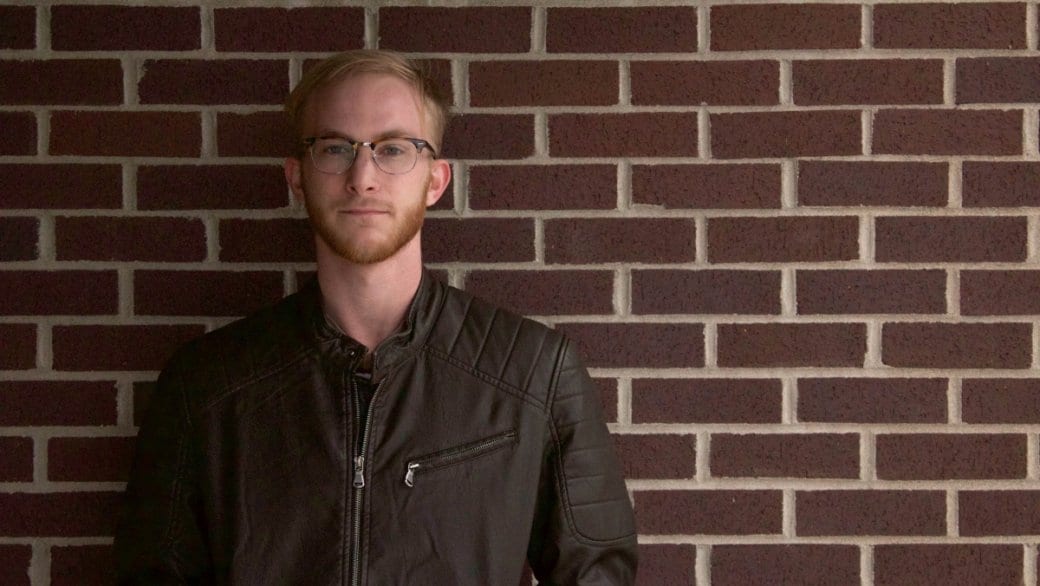Kody Carlson’s grandfather desperately needs a liver donation, but a homophobic Health Canada policy could prevent the young gay man from saving his grandfather’s life.
A December 2007 decision by Health Canada bans all men who have had sex with another man in the last five years from donating an organ, unless they apply for and receive an exemption from a physician.
A similar ban on gay men donating blood was reduced in 2016, though it too still blocks donations from men who have been sexually active with other men in the last year.
Carlson, a 26-year-old New Brunswick man, says he discovered the organ donor ban after his grandfather’s doctor said he needed a liver donation, and that a young, male relative would be the ideal donor.
Living donors of livers are common in Canada; only a portion of the donor’s liver is removed and it can grow back. According to the Canadian Blood Services website, “there are not enough deceased liver donors to meet the need for liver transplants in Canada” and donating to a known recipient can help the recipient move up the long waiting list for a transplant.
But in order for Carlson to donate his liver, he would have to receive an exemption from his grandfather’s physician, after discussing with his grandfather the supposed risks of receiving a transplant from his gay grandson.
Carlson is already out to his grandfather but says “it’s unfortunate that in 2017 in Canada, being gay means that when your grandfather is ill, you end up having to discuss your sex life with him.”
Carlson hasn’t yet applied for the exemption but is stressed to think he might be rejected because of homophobia.
“We’ve mostly been talking about it within the family, so we haven’t reached the point where we’d need to send in applications to see who’s eligible,” he says.
He says his family will consult the physicians in a few months to assess whoever is willing to donate. “When the call came to me, I realized that it’s possible I could be blocked from donating because of these discriminatory policies,” he says.
Carlson says he is very close with his grandfather and has fond memories of spending time with him as a child.
“He’s a carpenter in Nova Scotia, and he’s the funniest person I know and just a joyful person to be around,” he says. “I remember spending hours with him in his carpentry shop and he would show me the different tools he had. He had this big tractor that he would take everywhere, and me and my brother would always go on.
“He’s from a very rural community, and he’s constructed the majority of the houses in his community. As we drove we would pass by all the houses that he’d built.”
Both Health Canada and Canadian Blood Services deny that the current policy is homophobic. Spokespersons from both organizations told Xtra that gay men can still donate organs, provided that recipients and their physicians give their informed consent. In practice, all donor information, including known risk factors, is presented to organ donation programs, who can decide in concert with patients if they will accept the donation.
Carlson has tried to connect with Health Canada and Canadian Blood Services but says their “responses have been unhelpful.”
“They say it’s not a homophobic policy because it’s not discriminating against gay people because gay people can sign up to be donors — it’s just men who have sex with men that are banned, which is a laughable comment,” he says.
In the 2015 election, the Trudeau Liberals campaigned on a promise to end the blood donation ban on men who have sex with men. However, their campaign was silent on the issue of organ donation. The government has not yet eliminated the blood donor ban either.
Andrew MacKendrick, a press secretary for the minister of health, told Xtra that the government will rely on scientific evidence when considering changes to the current bans.
“Our government is committed to scientific and evidence-based decision making, and it is our expectation that alongside other donation policies, organ donation will reflect this commitment,” MacKendrick says.
Canadian Blood Services and Health Canada are scheduled to begin consultation on ending the blood ban this month. Carlson says a reduction in the organ donor ban from five years to one — to match the current blood donor ban — isn’t a solution.
“A reduction isn’t enough. It’s still homophobic and my grandfather doesn’t have a year for me to remain abstinent,” he says.


 Why you can trust Xtra
Why you can trust Xtra


